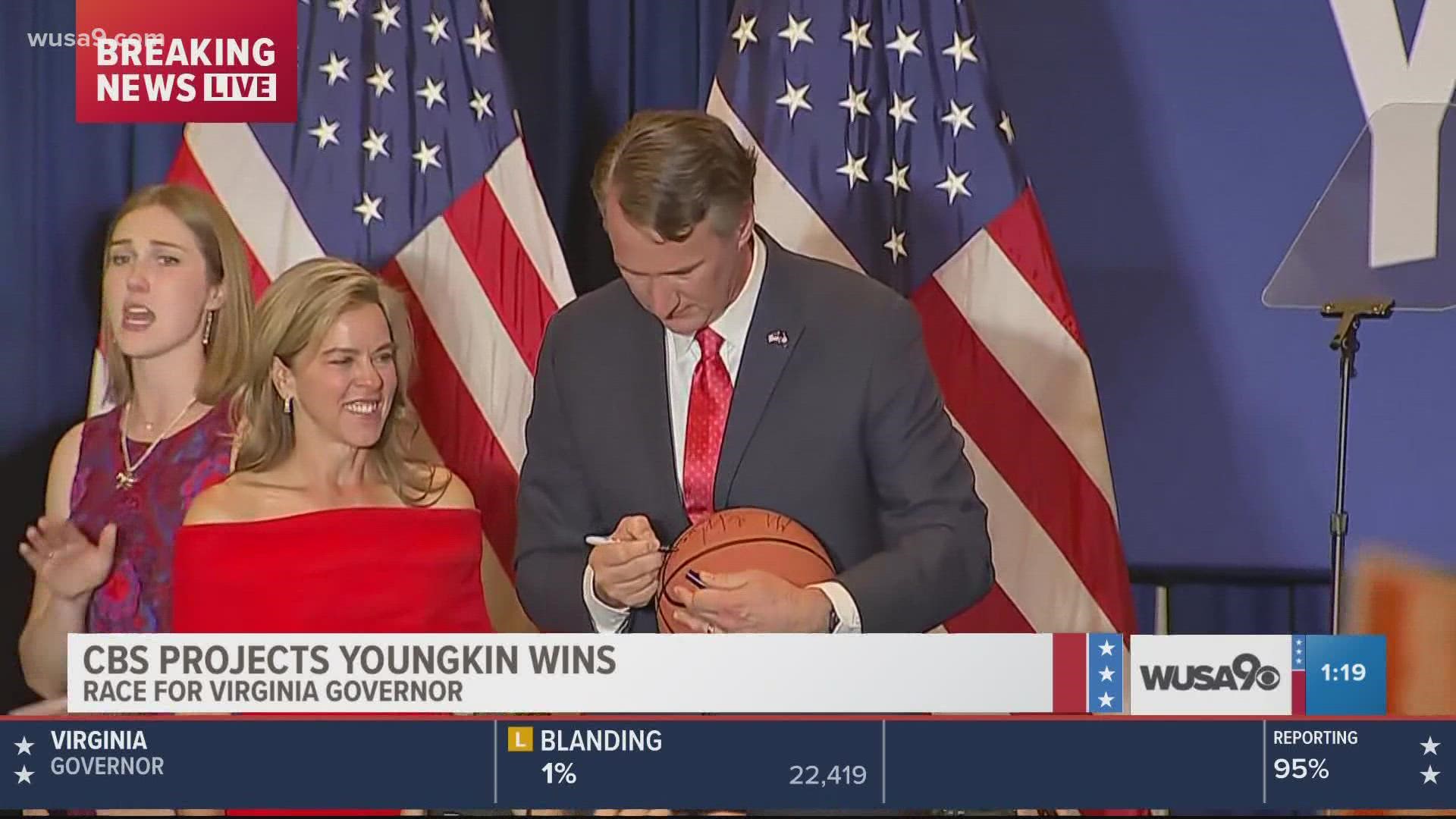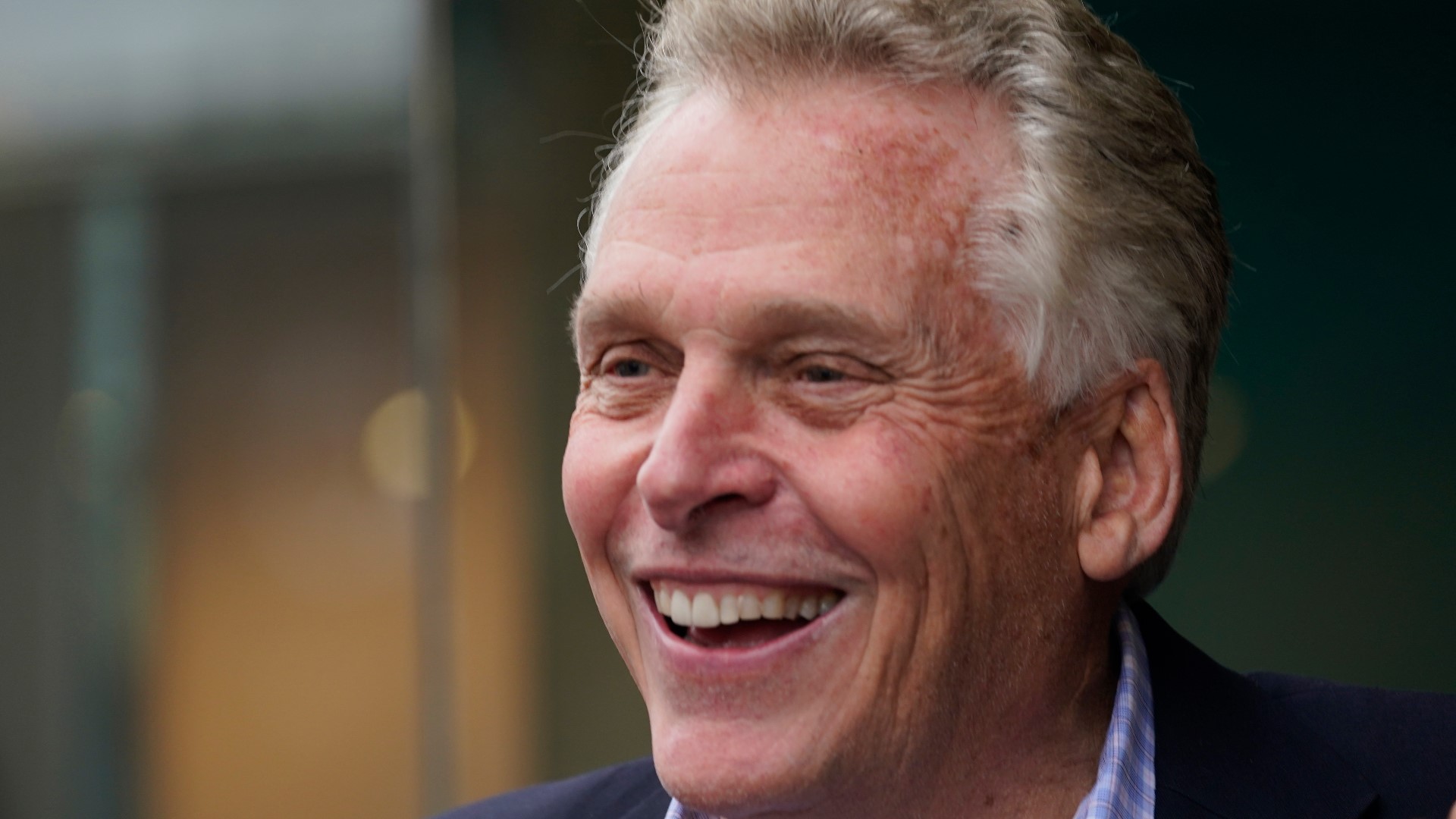WASHINGTON — On the morning after Virginia Republicans took home big wins in several tight races -- including the gubernatorial contest -- two questions have been top of mind for voters: How will the governor-elect govern, and what happened for Terry McAuliffe?
Two of Virginia's top political analysts have some ideas.
"Glenn Youngkin benefited enormously from the fact that President Biden has become quite unpopular even in a state like Virginia that he carried by 10 points," said Larry Sabato, founder and director of the University of Virginia's Center for Politics. "[President Biden's] approval level is somewhere in the mid-40s. And that isn't good enough to get a member of your own party elected governor, in Virginia. It's only happened once since 1977. Usually, the party, not in control of the White House wins the governorship and that happened yet again."
But Sabato doesn't think it was all about the president. Democrats in Congress had an impact on the Virginia election, too, he says.
"Youngkin benefited from the embarrassing disagreements, almost a clown car, among the Senate and House Democrats that not only couldn't reach an agreement, but had to parade in front of the cameras hour after hour, airing their grievances against one another," he said.
The campaigning strength of former private equity CEO and political neophyte Glenn Youngkin can't be discounted in his win either -- Youngkin turned out to be a natural, Mark Rozell said.
"That was a big surprise, I think, in this election campaign," Rozell, the founding dean of the Schar School of Policy and Government at George Mason University, said. "And he was really good at it."
Analysts have repeatedly pointed to what they call a strategic blunder by McAuliffe's campaign."
"They also thought that they could run a campaign focused on Glenn Youngkin as a Trump acolyte," Rozell said. "The same playbook that they had done successfully, by the way, for the previous four years of effectively running against Donald Trump and the Trump-wing of the Republican Party. But Donald Trump is a diminished figure right now. He's neither in the White House nor on the ballot, and therefore not a real threat to the voters of Virginia."
Rozell called the Trump-Youngkin alignment tactic a "big mistake" by Democrats, saying they might have been better served by picking a person of color as their standard-bearer, a fresh face that might have fired up the Democratic base.
"(T)hat's a question I think the Democrats are going to be asking themselves going forward," he said. "For those in the Democratic base who are looking for someone to excite them, I think going back to someone who had been governor before wasn't what they were looking for in this election cycle. And there was a big enthusiasm gap by the way, between the Democratic voters and the Republican voters in Virginia."
Youngkin talked one way at his events with his base, questioning election integrity and suggesting the F.B.I. and prosecutors funded by George Soros were conspiring to intimidate parents who turned out at school board meetings. But when questioned by reporters, he disavowed violence, pledging allegiance to flags flown during the Jan. 6 insurrection, and other extreme positions.
So how is he going to end up governing? Does he govern to the right, or does he try and tack to the middle?
"This is a major problem that Youngkin faces," Sabato acknowledged. "He may think that the hard part's over but the hard part hasn't even begun. He is going to have to satisfy a hard-right Republican base, and I do mean hard right."
The House of Delegates, which is projected to swing to Republican control, is "well to the right" of some of Youngkin's politics, according to Sabato.
"At least on issues not involving social and cultural matters," he clarified. "On social and cultural issues -- like abortion and gay rights -- he's as far to the right as just about any other Republican, and that's going to clash with Virginia public opinion. Virginia public opinion is in favor of abortion rights. It's in favor of gay rights. It's in favor of some of the limitations on the Second Amendment, for example. He favors none of that. So it's not going to be easy for him."


